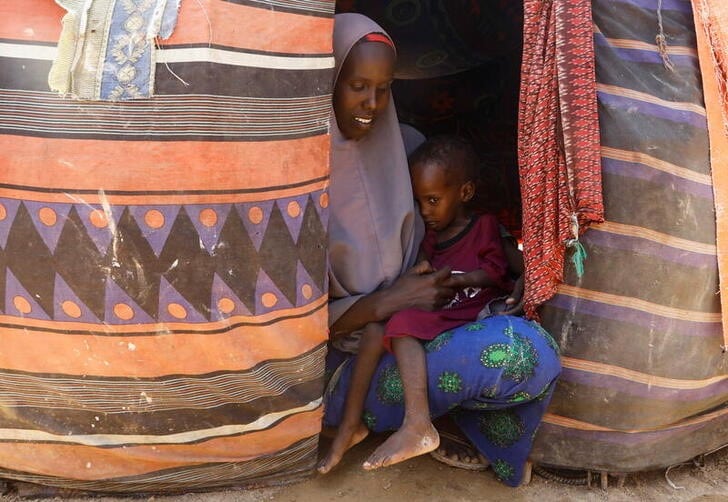
BAARDHEERE, Somalia, March 15 (Reuters) – It has not rained on Habiba Maow Iman’s farm in southern Somalia for two years. Her animals are dead; her crops failed.
Wrapped in a shawl stamped with rows of white flowers, the 61-year-old is one of tens of thousands seeking aid on the outskirts of Baardheere town.
The Horn of Africa region is facing the driest conditions in more than four decades after three consecutive rainy seasons failed, according to the United Nations’ World Food Program (WFP).
More than four million Somalis like Iman will struggle to find food if the rains don’t come in April, WFP said.
“We fled from the drought,” she said, surrounded by domed huts built with a patchwork of cloth and plastic sheeting. “Every day I go out and knock every house in the town to beg something for the children to eat.”
Somalia has experienced a series of catastrophic droughts in the last decade.
Read more: West Africa bloc to deploy stabilizing force to Bissau after coup attempt
Global weather patterns indicate that the rains are likely to fail again this year, according to the Famine Early Warning System Network (FEWS Net), which has warned that the region could experience its worst drought on record. Read full story
Lying at the bedside of his sick son, Abdullahi Abdow Mohamed travelled by donkey cart for six days to get to Baardheere, only to find the camp in the grip of a measles epidemic.
All four of his children caught the disease. One daughter has already died.
“These people have lost everything,” said El-Khidir Daloum Mahmoud, WFP’s country director. “Human suffering is human suffering, no matter whether it is in Europe or Africa or Asia or anywhere… we have a crisis in the making.”
If this year’s rains do not materialise, 1.4 million children under five will be acutely malnourished by the end of the year, a WFP spokesperson said.
Earlier this month, the U.N.’s Intergovernmental Panel on Climate Change, the top global climate science authority, said heatwaves, droughts and extreme rainfall would become more frequent in coming decades as temperatures continue to climb. Read full story
(Reporting by Feisal Omar, additional reporting by Abdi Sheikh, writing by Hereward Holland; editing by Katharine Houreld and Jane Merriman)

